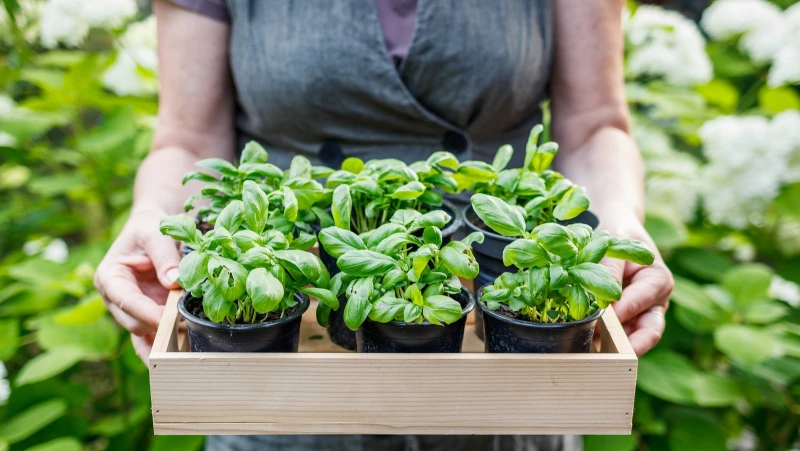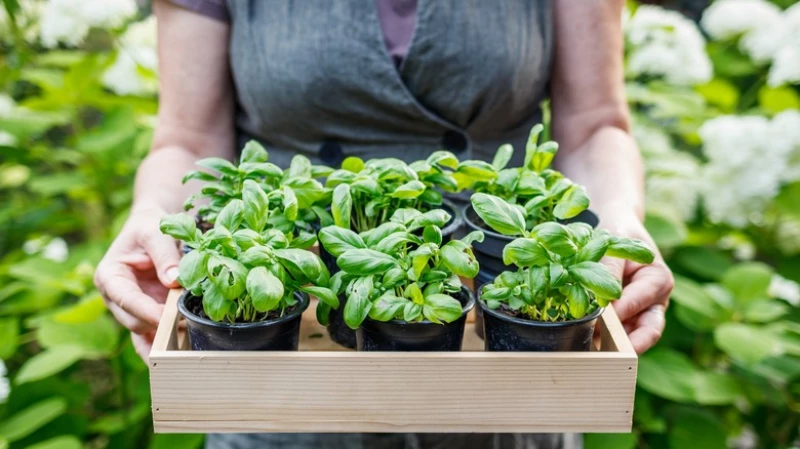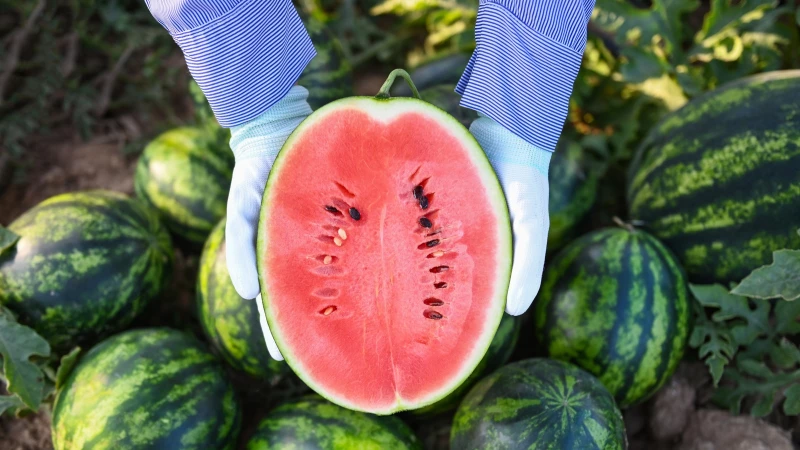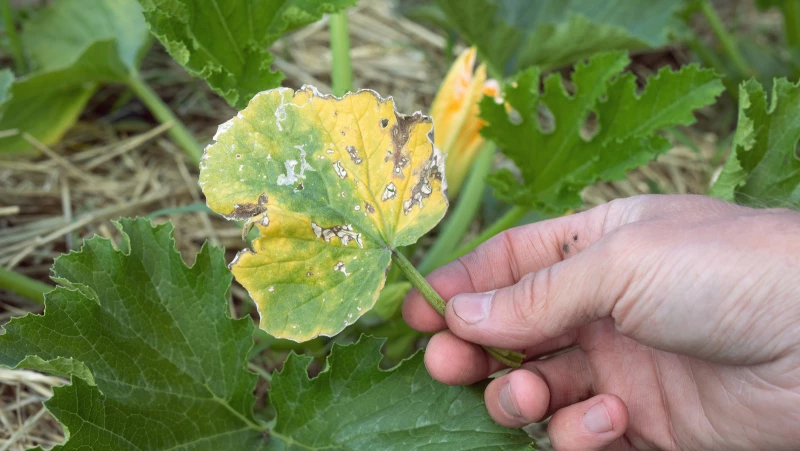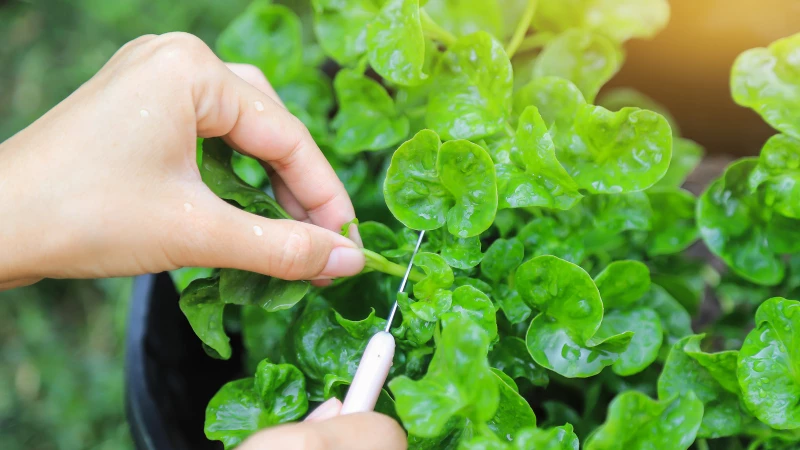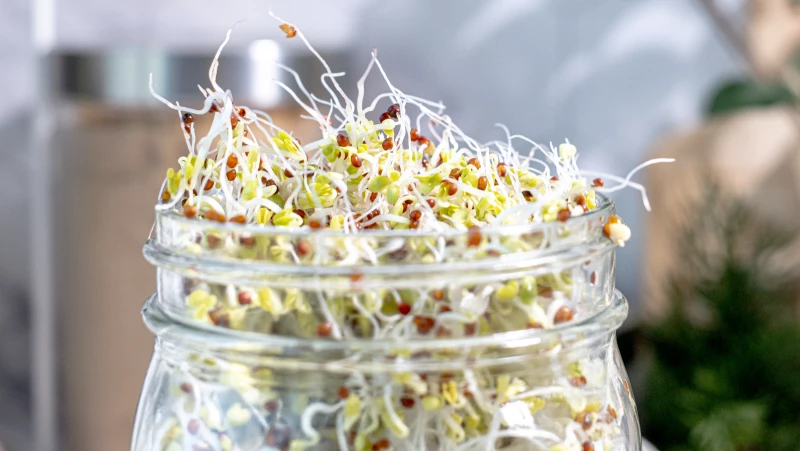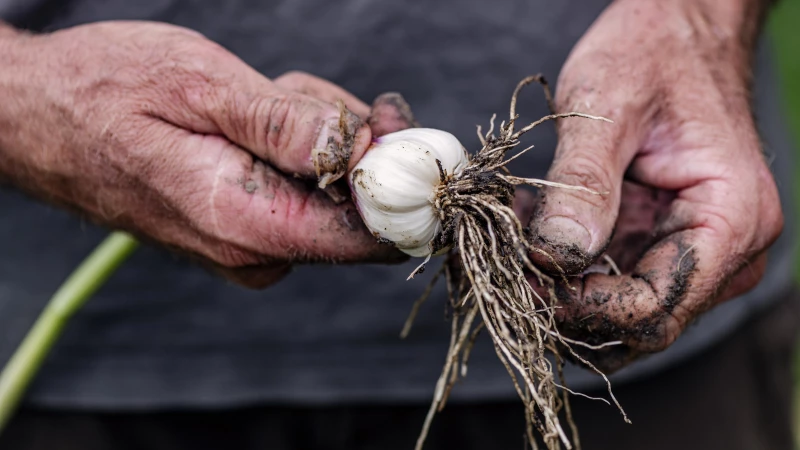Basil, a versatile and flavorful herb commonly used in cooking, is not only beneficial in the kitchen but also in the garden. With its strong odor, basil acts as a natural defense against pests, repelling them with its taste and aroma. This makes it an ideal companion plant for other crops, as it can help reduce pest infestations and promote healthy crop yields. One vegetable that particularly benefits from the presence of basil is asparagus.
Asparagus, a household favorite, is often targeted by pests like the asparagus beetle. However, by planting basil nearby, the herb can protect the asparagus by deterring the beetles from feeding on the vegetable's shoots and spears. This natural partnership between basil and asparagus creates a win-win situation for both plants, ensuring a pest-free and bountiful harvest.
So, next time you're planning your garden, consider adding basil as a companion plant to protect your beloved asparagus and enjoy the benefits of this heavenly match.
Basil's strong odor repels pests and attracts beneficial insects
Basil: A Natural Solution to Protect Your Asparagus Crop
Protecting your asparagus crop from pests is essential for a successful harvest. One common pest that can damage your asparagus is the asparagus beetle. This beetle is easily identifiable by its mostly bluish-black colored back with cream-colored spots and red sides near its wings. If you notice the tips of your asparagus turning brown, it may be a sign that your crop has been infested by these beetles.
Fortunately, there is a natural solution to keep these pests away from your asparagus - basil. The strong smell of basil confuses the asparagus beetle and prevents them from eating and damaging your crop. To make the most of this natural repellent, it is recommended to gently brush the basil leaves with your hands as you garden. This helps release the natural oils and aroma of the basil, further deterring the beetles.
Using basil as a pest control method not only protects your asparagus, but it also brings additional benefits to your garden. Basil attracts beneficial insects such as bees and butterflies, which are essential for pollination. These pollinators help neighboring plants thrive and contribute to a healthy soil structure. Additionally, basil attracts predatory wasps that feed on pest larvae. By controlling the pest population, these wasps prevent pests from reaching maturity and laying more eggs.
Another advantage of using basil as a natural pest control method is that it has similar growing requirements as asparagus. This means that you can conveniently grow both crops together, creating a harmonious and beneficial growing environment. Basil prefers full sun and well-drained soil, just like asparagus. By planting them side by side, you can maximize space and resources in your garden.
So, if you're looking for a natural and effective way to protect your asparagus crop from the asparagus beetle, consider planting basil as a companion plant. Not only will it keep the pests away, but it will also attract beneficial insects and enhance the overall growing environment of your garden.
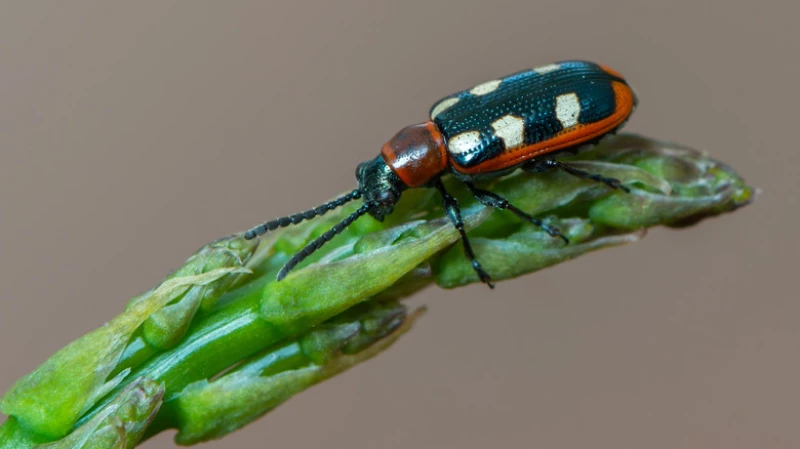
Companion Plants: Basil and Asparagus
Basil and asparagus naturally grow well next to each other and keep one another healthy. They both prefer at least six hours of sun a day, thrive in well-drained soil, and need to be watered about once a week. Plus, basil's small size does not take up the nutrients and space asparagus needs to thrive, so the pair of companion plants do not compete for valuable resources such as water.
While it's clear that basil helps asparagus grow healthy, it should not go unsaid that asparagus helps basil thrive too. The tall spear-shaped vegetable provides needed shade to cover sun-sensitive plants such as basil, so the herb's leaves do not burn from harsh direct sunlight during peak afternoon hours. When planting basil next to your asparagus, you can either plant basil starts or seeds between your rows of asparagus or in containers placed nearby. Give it a try!

